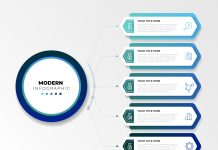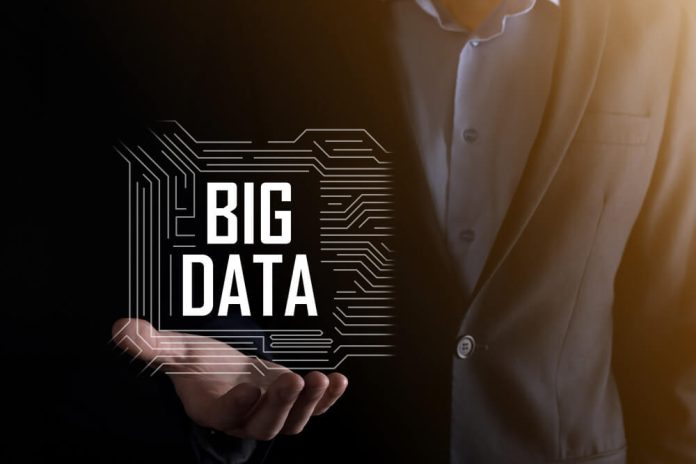Big Data and AI are revolutionizing B2B marketing by providing personalized insights and predictive analytics. These technologies enable businesses to connect with clients, understand their needs, and drive growth.
Leveraging AI and Big Data, businesses can create more targeted campaigns, generate better leads, and improve ROI. This article delves into the ways AI and Big Data are reshaping B2B marketing and offers insights on how companies can effectively leverage these tools for success.
Understanding and leveraging these technologies allows businesses to succeed in today’s digital landscape.
The Role of AI in B2B Marketing
AI is at the forefront of B2B marketing innovation. It enables marketers to analyze vast amounts of data, automate processes, and create personalized experiences at scale. Here are some key ways AI is transforming B2B marketing:
1# Enhanced Customer Segmentation
AI allows marketers to segment their audience more precisely than ever before. By analyzing data from various sources such as social media, CRM systems, and website interactions, AI can identify patterns and segment customers based on behavior, preferences, and purchasing history. This leads to more targeted marketing efforts that resonate with specific audience segments.
2# Predictive Analytics
Predictive analytics, powered by AI, enables marketers to forecast future trends and behaviors. By analyzing historical data, AI can predict which leads are most likely to convert, which customers are at risk of churning, and which marketing strategies are likely to yield the best results. This allows businesses to allocate resources more effectively and optimize their marketing strategies for better ROI.
3# Personalized Marketing Campaigns
Personalization is key in B2B marketing, and AI makes it possible to deliver highly personalized content to each customer. AI algorithms can analyze customer data in real time and tailor marketing messages, product recommendations, and content based on individual preferences and behavior. This level of personalization can significantly improve customer engagement and conversion rates.
4# Chatbots and Conversational AI
AI-powered chatbots are becoming increasingly popular in B2B marketing. They provide instant customer support, answer queries, and guide prospects through the sales funnel 24/7. Conversational AI can handle complex interactions, providing a seamless experience for users and freeing up human resources for more strategic tasks.
5# Content Creation and Curation
AI is also making strides in content creation and curation. Tools like GPT-4 can generate high-quality content for blogs, social media, and other marketing materials. Additionally, AI can curate content based on audience interests, ensuring that the right content reaches the right audience at the right time.
The Impact of Big Data on B2B Marketing
Big Data complements AI by providing the massive datasets needed for AI to function effectively. In B2B marketing, Big Data is invaluable for understanding customer behavior, optimizing campaigns, and making data-driven decisions. Here’s how Big Data is transforming B2B marketing:
1# Data-Driven Decision-Making
Big Data enables marketers to make decisions based on empirical evidence rather than intuition. By analyzing data from various sources, businesses can identify trends, measure campaign performance, and understand customer behavior. This leads to more informed decisions and more effective marketing strategies.
2# Improved Customer Insights
Big Data provides a 360-degree view of customers, allowing businesses to understand their needs, preferences, and pain points. By integrating data from different touchpoints, marketers can create detailed customer profiles and deliver more relevant and personalized marketing messages.
3# Optimized Marketing Spend
With Big Data, businesses can track the performance of their marketing campaigns in real time and adjust their strategies accordingly. This ensures that marketing budgets are spent on the most effective channels and tactics, maximizing ROI.
4# Enhanced Lead Generation
Big Data allows businesses to identify and target high-quality leads more effectively. By analyzing data from various sources, marketers can identify potential leads that match their ideal customer profile and tailor their marketing efforts to attract and convert these leads.
5# Real-Time Analytics
One of the biggest advantages of Big Data is the ability to analyze data in real-time. This allows businesses to respond quickly to changes in the market, customer behavior, or campaign performance. Real-time analytics enable marketers to make data-driven decisions on the fly, ensuring that their strategies remain effective and relevant.
Integrating AI and Big Data for B2B Marketing Success
The true power of AI and Big Data lies in their integration. When used together, these technologies can provide deep insights and enable highly effective marketing strategies. Here’s how businesses can integrate AI and Big Data for B2B marketing success:
1# Unified Data Platforms
Businesses should invest in unified data platforms that integrate data from various sources, including CRM systems, social media, and website analytics. These platforms should be equipped with AI capabilities to analyze the data and provide actionable insights.
2# Automated Marketing Workflows
AI and Big Data can automate many aspects of marketing, from lead scoring to content delivery. By automating these processes, businesses can ensure that their marketing efforts are consistent, efficient, and effective.
3# Personalization at Scale
With AI and Big Data, businesses can achieve personalization at scale. This means delivering personalized experiences to a large audience without sacrificing quality or relevance. Businesses should leverage AI to analyze Big Data and tailor their marketing efforts to each customer.
4# Continuous Optimization
AI and Big Data enable continuous optimization of marketing strategies. By analyzing real-time data and using AI to predict future trends, businesses can constantly refine their strategies to achieve better results. This ensures that their marketing efforts are always aligned with their business goals.
Conclusion
B2B marketing is transforming, driven by the integration of AI and Big Data. These technologies are enabling businesses to understand their customers better, create more targeted and personalized marketing campaigns, and make data-driven decisions that lead to better outcomes.
Big Data and AI are revolutionizing marketing, enabling businesses to enhance their marketing strategies, drive growth, and achieve long-term success. As AI and Big Data continue to evolve, the potential for B2B marketing is limitless, offering new opportunities for those willing to adapt and innovate.
I hope you find the above content helpful. For more such informative content please visit TechEdgeDemand.










